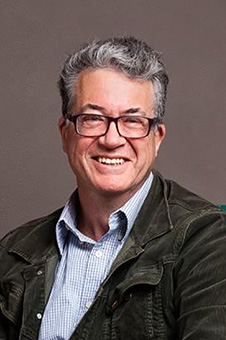New Zealanders are being urged to do their homework before travelling overseas for dental procedures.
Researchers in a University of Otago-led study interviewed 20 dental professionals about their perceptions of the impact of outbound dental tourism on patients and practices.

Professor Brent Lovelock.
As people increasingly seek medical treatment overseas, lead author Professor Brent Lovelock, of the Department of Tourism, says New Zealanders need to be careful.
“Although the dentists in our study acknowledged that much of the dental treatment received by New Zealanders overseas was of a high standard, they also encountered in their practices many Kiwis who have received sub-standard treatment abroad,” he says.
The findings, published in the New Zealand Dental Journal, show cost is the main motivator for people to head overseas, especially with COVID‑19 related travel restrictions lifted and the increasing cost of living.
“So many people may be considering combining overseas travel with dental treatment to hopefully make a saving. However, they really need to do their homework first.
“If you were visiting somewhere overseas and wanted to do a bungy jump, it’s likely that you would first check out the bungy company’s credentials and accident record. Likewise, dental tourists also need to do their due diligence.”
Professor Lovelock says it is important for people to find out as much information as possible about the dentist (such as their qualifications, experience and quality of their practice) and the procedure.
Ensuring patients have booked enough time for the treatment, which may require multiple visits to the dentist, to be completed is vital.
“And importantly, New Zealanders should share their dental records with their overseas dentist before travelling and bring home the full record of their overseas treatment with them.
“We found that most dentists are very willing to talk to their patients about the risks and benefits of travelling overseas for dental treatment – it is much better to do this before travelling rather than having difficult conversations once they return with a post-treatment problem.”
Co-author Professor Karl Lyons, of the Faculty of Dentistry, says patients who go overseas for treatments are not covered by the same consumer protections as people who undergo procedures in New Zealand.
People who are not satisfied with their treatment or services locally can make a complaint to a range of authorities not available to those who travel overseas, he says.
“Overseas dental treatment can be cost-effective and of high quality, but problems can sometimes arise.
“If there are complications with treatment received overseas, patients may find contacting the overseas dentist or practice difficult, and remediation treatment, whether in New Zealand or overseas, may be expensive.”
Professor Lyons suggests anyone considering dental tourism plan well and involve their local dentist in the decision-making process.
Professor Lovelock agrees. “We all know that we need to be properly vaccinated, prepared and insured before embarking on an overseas trip; the same principles apply to dental tourism. Research the dental provider and prepare thoroughly first – and for this it is best to talk with your dentist,” he says.
Publication details
"Returning home with a bargain or a burden? New Zealand dentists’ perceptions of the impact of dental tourism on patients and practices"
Brent Lovelock (University of Otago), Alistair Burnett (Warkworth Dental Practice), Geeny Moon (Lumino The Dentists), David Roessler (University of Otago Auckland Dental Facility), Karl Lyons (University of Otago).
New Zealand Dental Journal
For more information, contact:
Professor Brent Lovelock
Department of Tourism
University of Otago
Email brent.lovelock@otago.ac.nz
Jessica Wilson
Adviser Media Engagement
University of Otago
Mob +64 21 279 5016
Email jessica.wilson@otago.ac.nz